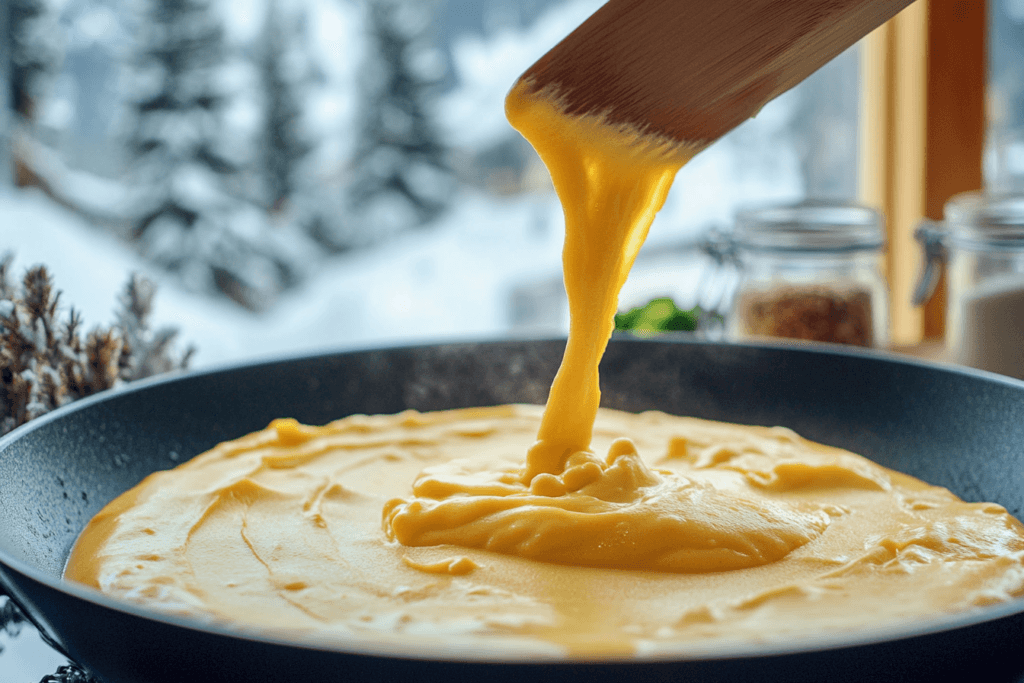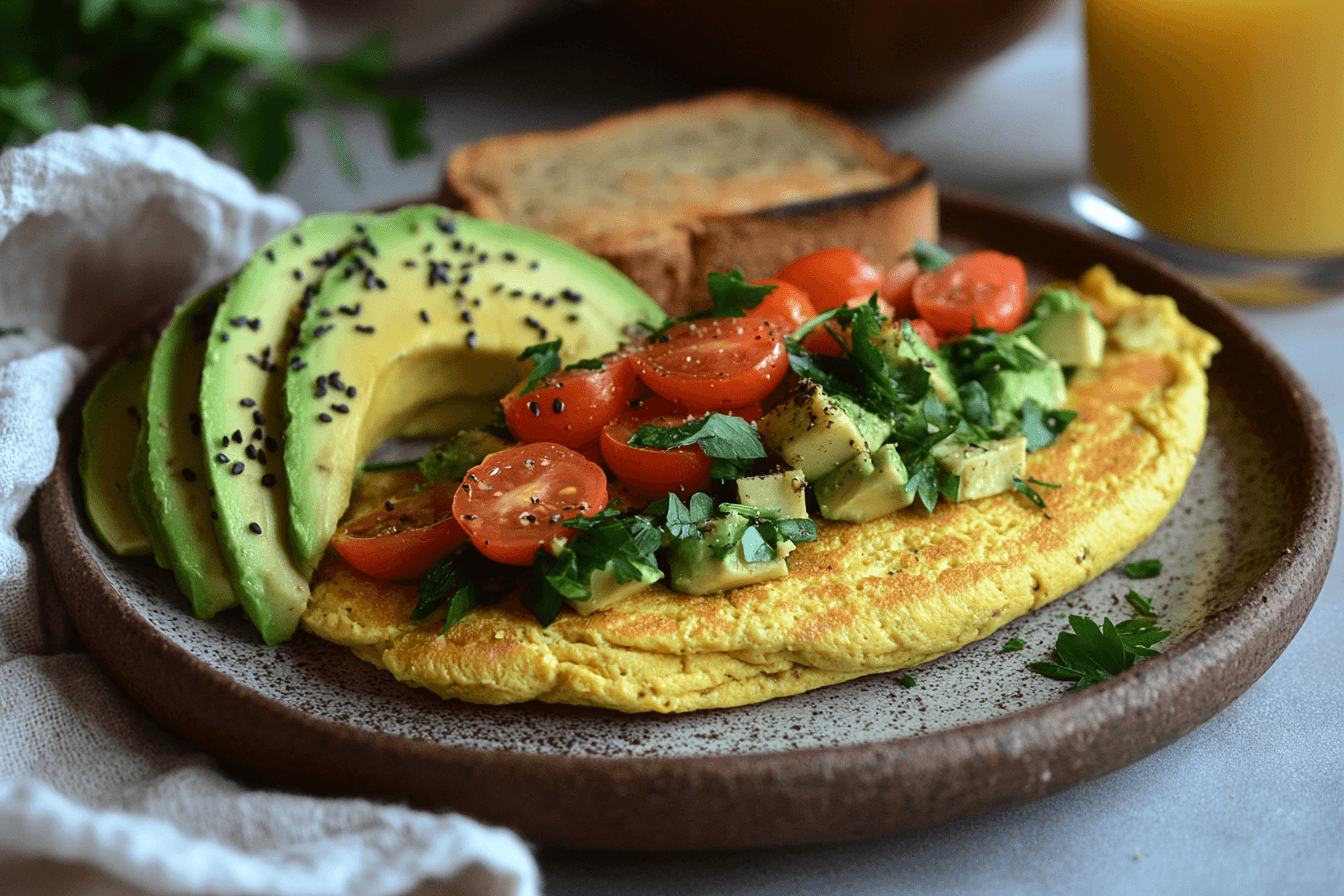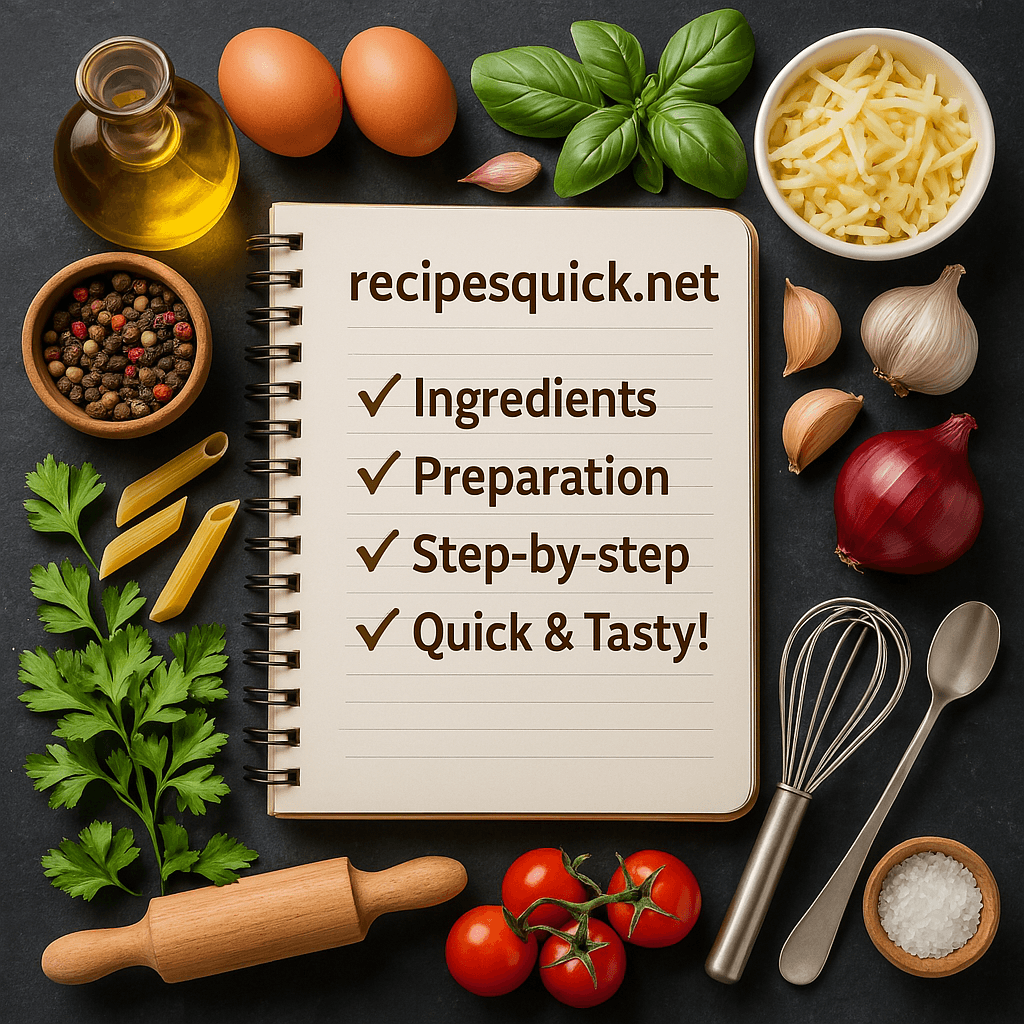Imagine starting your day with a tasty breakfast that’s good for you and the planet. Vegan eggs have changed the game for morning meals. They offer a delicious, healthy alternative without sacrificing taste or nutrition.
More people are trying plant-based eating, and vegan egg options are getting better. Whether you’re fully vegan or just want to eat less animal products, these alternatives are exciting. They have 11g of protein per serving, just like regular eggs.
Your breakfast just got a lot more exciting. Vegan eggs are made from smart plant-based ingredients like chickpeas, tofu, and mung beans. They taste and feel amazing, even for those who love regular eggs. You can make scrambles, omelets, and more with these eggs.
Table of Contents
Understanding Why Plant-Based Eggs Are Gaining Popularity

The world of egg alternatives is changing fast. More people are choosing cruelty-free eggs for their health and the planet. Plant-based eggs are a big hit for those looking for a nutritious and green breakfast.
There are good reasons why sustainable eggs are becoming more popular:
- Zero cholesterol content
- Significantly lower environmental impact
- Reduced carbon footprint compared to traditional egg production
- Ethical considerations for animal welfare
Health-conscious folks are finding many benefits in egg alternatives. Just Egg, made from mung beans, has 6 grams of protein per serving. It’s very close to real eggs in nutrition.
“Plant-based eggs represent more than just a food choice – they’re a commitment to personal and planetary health.” – Food Innovation Experts
Environmental factors are key in why people prefer cruelty-free eggs. Plant-based eggs need much less water and land than traditional eggs. They also produce a lot less greenhouse gases.
| Aspect | Plant-Based Eggs | Traditional Eggs |
|---|---|---|
| Cholesterol | Zero | 207mg per large egg |
| Protein | 6g per serving | 6g per large egg |
| Environmental Impact | Low | High |
Choosing plant-based eggs is more than just a food choice. It’s part of a bigger movement towards better food systems. It’s about caring for our planet and ourselves.
What Are Vegan Egg Substitutes Made From?

Exploring meatless eggs has changed plant-based cooking. Now, your cholesterol-free eggs can come from many new ingredients. These ingredients mimic eggs’ texture and nutritional value.
Vegan egg alternatives come from different plant-based sources. You can find them made from:
- Mung beans
- Chickpea flour
- Tofu
- Chia seeds
- Flaxseed meal
Each ingredient has its own special qualities. Flaxseed meal, for example, makes a great egg substitute. Mix 1 tablespoon of meal with 3 tablespoons of water to make a “flegg.” It’s perfect for baking.
“Plant-based eggs are not just a trend, they’re a nutritional revolution.” – Plant-Based Nutrition Expert
Commercial vegan egg products use starches and proteins to get the right consistency. Brands like Just Egg have created liquid egg replacers. They’re great for omelets and scrambles.
Protein-rich options like tofu, nut butters, and mashed beans keep your dishes nutritious. Black salt (Kala Namak) adds a real egg flavor. It makes cholesterol-free eggs taste just like the real thing.
The Rise of Commercial Vegan Egg Products
The vegan egg market is booming, changing breakfasts in the US. North America leads, with 48.3% of the market in 2023, worth about $636.9 million.
Big names in the vegan egg world are making waves with their products:
- Just Egg: Dominating 99% of the US vegan egg market
- Follow Your Heart: Acquired by Danone in 2021
- Zero Egg: Launched an improved plant-based egg patty in 2024
- EVO Foods: Raised $850,000 for market expansion
People want more plant-based options, driving the market’s growth. The global plant-based eggs market is expected to grow by 24.3% from 2025 to 2034. It’s set to reach $627.1 million in the US alone.
“Innovations in plant-based eggs are focused on closely mimicking the taste, texture, and appearance of traditional eggs,” says industry experts.
| Market Segment | 2024 Market Share | Projected CAGR |
|---|---|---|
| Liquid Plant-Based Eggs | 56.9% | 24.9% |
| Scrambled Eggs | Emerging Segment | 27.9% |
Vegan egg products show a shift towards healthier, greener food choices. They offer less cholesterol and saturated fats, appealing to health-focused consumers across the country.
Creating Perfect Eggless Omelets at Home
Want a tasty breakfast without eggs? Vegan egg substitutes have made eggless omelets super easy to make. You can whip up a perfect plant-based omelet in just a few minutes with simple ingredients and some cooking tips.
The secret to amazing eggless omelets is chickpea flour. This ingredient makes a protein-rich base that looks and feels like real eggs. Here’s what you’ll need:
- 1 cup chickpea flour
- ½-¾ cup water
- Black salt (kala namak)
- Nutritional yeast
- Optional vegetables for filling
Mixing your vegan egg batter needs care. Start by whisking chickpea flour with water until it’s smooth. Add a pinch of black salt for that eggy taste. Pro tip: Nutritional yeast gives your omelet a cheesy flavor.
“The key to a great vegan egg is in the details of preparation and seasoning.” – Plant-Based Chef Recommendation
When cooking your eggless omelet, use a non-stick pan and medium heat. Pour the batter evenly, letting it set for 2-3 minutes before adding your favorite fillings. Fold carefully and cook until it’s golden brown.
| Nutritional Profile | Per Omelet |
|---|---|
| Calories | 103 kcal |
| Protein | 5g |
| Carbohydrates | 12g |
Your homemade vegan egg omelet is not just tasty—it’s full of nutrients and has no cholesterol. With a bit of practice, you’ll be making restaurant-quality eggless omelets in your kitchen!
Best Vegan Egg Brands for Scrambling
Looking for the best plant-based eggs for your morning scramble? You’re in luck! Today, there are many tasty options to change up your breakfast.
JUST Egg is a top pick in the plant-based eggs market. It was launched in 2019 and quickly became popular. This liquid egg substitute is made from mung bean protein. It looks and feels like real eggs, with a pale yellow, shiny color.
“Not all egg alternatives are created equal – some truly shine in the scrambling department!” – Vegan Breakfast Experts
Here are the best vegan egg brands for scrambling:
- JUST Egg: Liquid egg substitute with water, mung bean protein, and canola oil
- Hodo Vegan All-Day Egg Scramble: Tofu-like texture with 2.5 servings per package
- AcreMade Egg Substitute: Unique blend of pea protein and lupin flour
- Vegg Power Scramble: Convenient powder mix with four servings per packet
| Brand | Protein Source | Servings | Unique Feature |
|---|---|---|---|
| JUST Egg | Mung Bean | 3-4 | Closest to real egg texture |
| Hodo | Tofu | 2.5 | Traditional scramble feel |
| AcreMade | Pea Protein | 2 | Neutral flavor profile |
Pro tip: Scramble your plant-based eggs on medium heat and stir constantly. Each brand is different, so try them out to find your favorite!
Natural Alternatives for Baking Without Eggs
Exploring egg alternatives for baking opens up new creative possibilities. Vegan egg substitutes can make your favorite recipes even better. They keep the delicious textures and flavors you love.
Looking to replace eggs in your baking? Several natural options are great:
- Flax eggs: A strong binding agent from ground flaxseed
- Mashed bananas: Adds moisture and sweetness
- Applesauce: Makes baked goods soft and tender
- Chia seeds: Excellent for binding
Here are some popular egg alternatives for your baking:
| Egg Substitute | Replacement Ratio | Best Used In |
|---|---|---|
| Flax egg | 1 tablespoon ground flax + 3 tablespoons water | Muffins, cookies, quick breads |
| Mashed banana | 1/2 medium banana | Soft cakes, moist brownies |
| Applesauce | 1/4 cup unsweetened | Pancakes, light cakes |
Pro tip: Each egg alternative has its own special qualities. Try different ones to find the best for your baking!
“Baking without eggs doesn’t mean sacrificing flavor or texture – it means exploring delicious new possibilities!” – Vegan Baking Expert
Aquafaba, the liquid from canned chickpeas, is another great vegan egg alternative. Just 3 tablespoons can replace one whole egg in most recipes. It’s amazing in meringues and cookies.
Remember, different egg alternatives are better for different recipes. The right substitute depends on the baked good and the role eggs play in it.
How to Make Your Own Vegan Egg at Home
Making your own vegan egg alternatives is simple. Just a few ingredients and some creativity in the kitchen can do the trick. You’ll get egg substitutes that taste great and are good for you.
Let’s dive into two great vegan egg methods. They’ll change how you make breakfast and bake:
Silken Tofu Vegan Egg Base
- Blend silken tofu with turmeric for authentic yellow color
- Add black salt (kala namak) for eggy flavor
- Perfect for scrambles and quiches
The silken tofu method is packed with protein. Each half serving has 4g of protein. It’s a great choice for a healthy breakfast.
Chickpea Flour Egg Alternative
- Mix chickpea flour with water and seasonings
- Create fluffy omelets and frittatas
- Customizable with various spices and herbs
“Homemade vegan eggs give you complete control over ingredients and flavor!” – Plant-Based Chef
When making your vegan egg alternatives, remember these nutritional facts:
- Approximately 83 calories per serving
- 3g total carbohydrates
- 8g total fat
- Rich in potassium (129mg per serving)
Pro tip: Keep your homemade vegan eggs in an airtight container in the fridge for up to 5 days. This way, you’ll always have fresh egg alternatives ready.
Nutritional Benefits of Plant-Based Egg Options
Exploring cholesterol-free eggs opens up a world of nutritional possibilities for health-conscious individuals. Vegan egg alternatives are not just a dietary trend but a powerful nutritional solution packed with essential nutrients.
Plant-based eggs offer remarkable nutritional advantages that can support your health goals. Many vegan egg products are fortified with critical vitamins and minerals, making them an excellent alternative to traditional eggs.
“Nutrition isn’t about perfection, it’s about balance and making informed choices.” – Nutrition Expert
Key Nutritional Highlights:
- Zero cholesterol content
- Lower saturated fat compared to chicken eggs
- Often fortified with vitamins B12 and D
- Comparable protein levels to traditional eggs
Vegan eggs are strong in protein. Products like Just Egg, made from mung beans, offer protein levels similar to chicken eggs. A single serving typically provides 5-6 grams of protein, supporting muscle health and daily nutritional needs.
| Nutrient | Chicken Egg | Vegan Egg Alternative |
|---|---|---|
| Protein | 6.5g | 5-6g |
| Cholesterol | 186mg | 0mg |
| Vitamin B12 | Limited | Often Fortified |
Choosing cholesterol-free eggs isn’t just about nutrition—it’s a lifestyle decision that supports heart health and environmental sustainability. By incorporating vegan egg alternatives into your diet, you’re making a positive impact on your personal wellness and the planet.
Common Mistakes When Cooking with Vegan Eggs
Cooking with plant-based eggs can be tricky for beginners. Many home cooks make critical errors that can compromise the texture and flavor of their egg alternatives. Understanding these common pitfalls will help you create delicious vegan egg dishes that rival traditional preparations.
Here are the most frequent mistakes people make when working with egg alternatives:
- Ignoring cooking temperature variations
- Overlooking proper seasoning techniques
- Expecting identical performance to traditional eggs
- Improper storage of plant-based eggs
Temperature is crucial when preparing vegan eggs. Different egg alternatives require unique cooking approaches. Silken tofu needs gentle heat, while chickpea flour can handle higher temperatures. Always read package instructions carefully to avoid overcooking or undercooking your plant-based eggs.
“Mastering vegan eggs is about understanding their unique properties and treating them with care.” – Vegan Culinary Expert
Seasoning plays a critical role in achieving an authentic egg-like experience. Kala namak (black salt) is a game-changer for plant-based eggs, providing a sulfuric flavor that mimics traditional eggs. Experiment with different seasonings to enhance your egg alternatives.
| Egg Alternative | Best Cooking Method | Key Seasoning |
|---|---|---|
| Tofu Scramble | Medium-high heat, constant stirring | Kala namak, turmeric |
| Chickpea Flour Eggs | Low to medium heat | Black pepper, nutritional yeast |
| Aquafaba | Gentle whisking | Salt, garlic powder |
Storage is another critical aspect of working with vegan egg alternatives. Always check the packaging for specific storage instructions. Most plant-based eggs have shorter shelf lives compared to traditional eggs, so purchase in smaller quantities and use promptly.
Incorporating Vegan Eggs into Your Weekly Meal Plan
Adding vegan egg alternatives to your meal plan can be exciting. These plant-based options can change your breakfast, lunch, and dinner. They make every meal fun and healthy.
Begin your day with new vegan egg dishes. These go beyond the usual scrambles. Here are some tasty ideas:
- Vegan Eggs Benedict with tofu hollandaise
- Breakfast burritos filled with scrambled vegan eggs
- Frittatas made with chickpea flour or silken tofu
- Quiches using cashew-based egg alternatives
Meal prep gets easier with vegan eggs. Pro tip: Batch cook your egg alternatives on weekends to save time during busy weekdays.
“Vegan eggs are not just a substitute – they’re a culinary adventure waiting to happen!” – Plant-Based Chef
Egg alternatives can also enhance your lunch and dinner. Use them as binders in:
- Veggie burgers
- Meatless meatloaves
- Savory breakfast casseroles
- Protein-packed salad toppers
With just 10 minutes of prep, you can make tasty vegan egg dishes. They offer about 137 calories per serving. Try different recipes to see how egg alternatives fit into your meals.
Expert Tips for Perfect Vegan Egg Dishes
Making top-notch vegan egg dishes needs some skill. To get good at making eggless omelets and vegan egg recipes, learn key preparation tips. These tips will make your plant-based cooking better.
Professional chefs share these important tips for amazing vegan egg dishes:
- Blend multiple plant proteins for complex texture
- Use nutritional yeast for authentic savory flavor
- Experiment with black salt (kala namak) for eggy taste
- Master whisking techniques for smoother consistency
“The secret to great vegan eggs is layering flavors and understanding protein interactions.” – Plant-Based Cuisine Expert
To make the perfect vegan egg, know how ingredients work together. Nutritional yeast brings depth, and ground flaxseed helps with texture, like eggs.
| Ingredient | Flavor Enhancement | Texture Impact |
|---|---|---|
| Nutritional Yeast | Savory, cheesy notes | Mild thickening |
| Black Salt | Sulfuric egg-like taste | Minimal texture change |
| Ground Flaxseed | Neutral flavor | Binding, moisture retention |
Remember, the more you practice, the better you’ll get at making vegan egg dishes. Every try teaches you more about how ingredients work and cooking techniques.
Conclusion
Vegan egg alternatives have changed breakfasts in the United States. Starting with plant-based eggs opens up a world of tasty and healthy choices. Every time you eat vegan eggs, you’re choosing better health, kindness to animals, and the planet.
Statistics show the impact. Americans eat about 386 eggs a year. But vegan eggs, made from chickpea flour and mung beans, are healthier. They have protein and fiber without the 186 milligrams of cholesterol in regular eggs. Over 17,000 doctors back reducing egg consumption for better health.
Exploring egg alternatives means trying new things. You can make chickpea patties or buy vegan scrambled eggs like Vezlay Foods. Choosing plant-based eggs is more than a food choice. It’s a way to eat better and help the planet.
The future of food is plant-based, and vegan egg alternatives are at the forefront. By trying these new options, you’re joining a global movement. This movement is all about eating better and being kinder to our planet.
Craving more mouthwatering, fast, and effortless recipes? 🍽️✨ Unlock a world of irresistible flavors at recipesquick.net and transform every meal into a delight!


